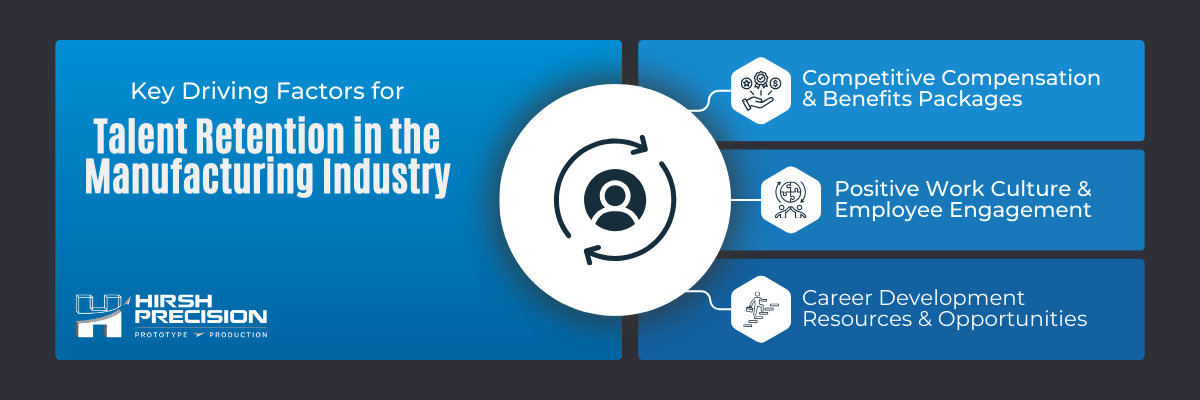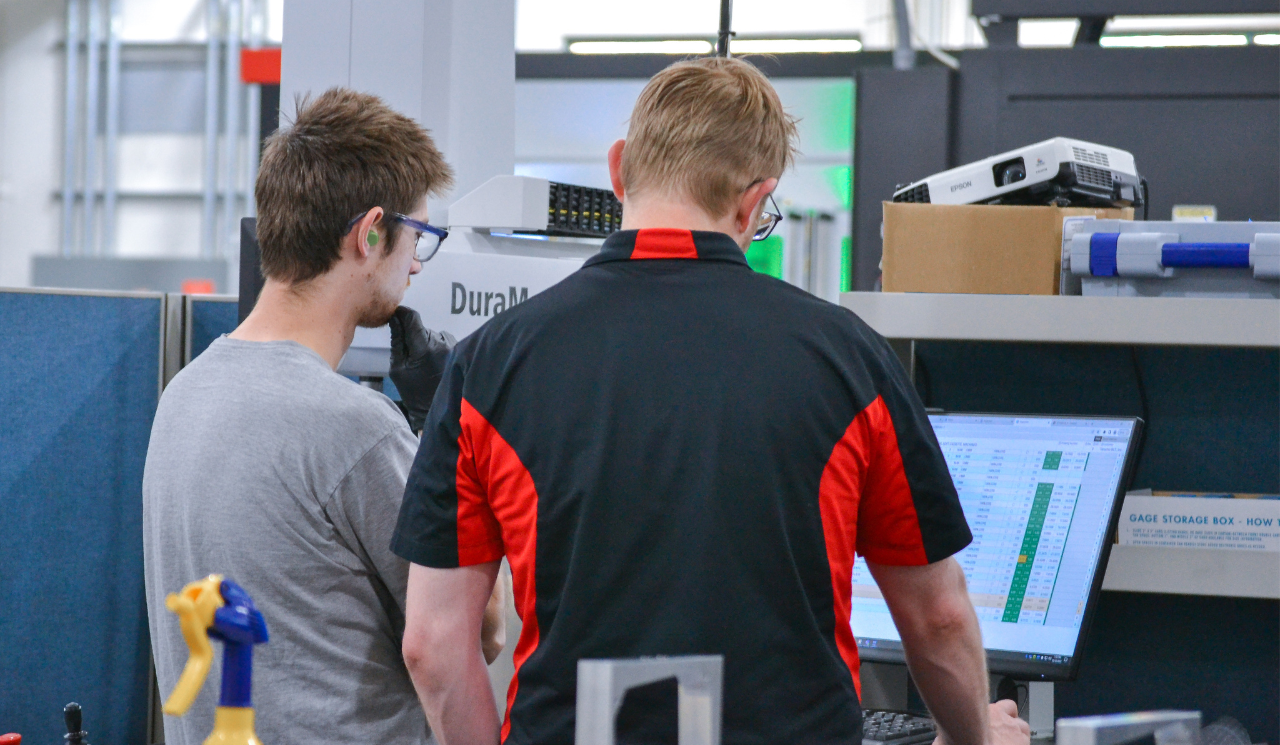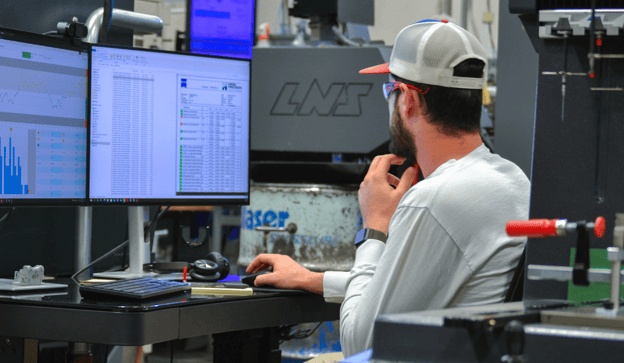Discover effective strategies to retain talent in the manufacturing industry and overcome the challenge of talent retention.
The Importance of Talent Retention in Manufacturing
With ongoing talent shortages and ever increasing skills gap, manufacturing companies must focus on retaining their skilled employees.
Retaining talent not only helps in maintaining continuity but also saves time and resources spent on recruiting and training new employees. It also ensures that the knowledge and expertise of experienced employees are retained within the organization, which contributes to the overall productivity and success of the company.
Key drivers for talent retention in the manufacturing industry include:
- Competitive compensation and benefits packages
- Positive work culture and employee engagement
- Career development resources
By understanding the importance of talent retention, manufacturing companies can make it a priority to invest in strategies to retain their skilled employees amidst a competitive workforce landscape.

Implementing Competitive Compensation and Benefits Packages
Competitive compensation and benefits packages are essential for attracting and retaining talent in the manufacturing industry. Manufacturing companies should conduct market research to understand industry standards and ensure that their compensation packages are competitive.
Comprehensive benefits packages that include health insurance, retirement plans, and paid time off are also important for talent retention. Employees value these benefits and are more likely to stay with a company that provides them.
By implementing competitive compensation and benefits packages, manufacturing companies can create a strong incentive for talented employees to stay with the organization.
Creating a Positive Work Culture and Employee Engagement
A positive work culture and employee engagement are crucial for talent retention. Employees who feel connected to their workplace and have a sense of belonging are more likely to stay with the company.
Creating a positive work culture involves fostering open communication, providing opportunities for collaboration and teamwork, and recognizing and rewarding employee achievements. Companies can also promote work-life balance and provide resources for employee well-being.
Employee engagement is another important aspect of talent retention. Engaged employees are enthusiastic about their work, committed to the company's goals, and motivated to contribute their best efforts. Manufacturing companies can promote employee engagement through regular communication, providing opportunities for skill development and career growth, and involving employees in decision-making processes.
By creating a positive work culture and promoting employee engagement, manufacturing companies can enhance talent retention and create a thriving workforce.
Investing in Career Development Resources
Investing in employee development and training programs is crucial for talent retention in the manufacturing industry. Employees value opportunities for growth and development, and companies that invest in their employees' professional advancement are more likely to retain top talent.
Manufacturing companies can provide on-the-job training, mentors who can facilitate cross-training, and access to professional development resources. They can also support employees in acquiring new skills and certifications that are relevant to their roles.
By investing in employee development and training programs, manufacturing companies show their commitment to their employees' success and growth, which in turn fosters loyalty and retention.
Talent retention is a significant challenge in the manufacturing industry. By understanding its importance and implementing effective strategies, manufacturers can overcome this challenge and retain their valuable talent.




